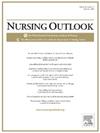产后妇女社会资本的桥梁作用:一个适度分析
IF 3.7
2区 医学
Q1 NURSING
引用次数: 0
摘要
背景母亲育儿自我效能感对母婴健康结果有显著影响。然而,影响它的因素还不是很清楚。目的探讨母亲自我效能感的相关因素,包括母婴健康诊所(MCHC)的出勤、桥接社会资本、状态焦虑和母乳喂养态度。方法采用结构化自我报告问卷对451名在母婴健康院就诊的3.5个月以下婴儿的母亲进行横断面研究。线性回归解释了母亲自我效能的差异。一项适度分析检验了桥梁社会资本在状态焦虑和母亲育儿自我效能之间的关系中的作用。遵循了频闪仪指南。桥接社会资本、状态焦虑和母乳喂养态度显著解释了母亲育儿自我效能感(方差为32.4%)。桥接社会资本调节状态焦虑与母亲自我效能的关系。结论公共卫生护士运营的母婴健康院服务是支持孕产妇自我效能感的重要社区资源,对孕产妇健康结局有积极影响。本文章由计算机程序翻译,如有差异,请以英文原文为准。

The role of bridging social capital among women after childbirth: A moderation analysis
Background
Maternal parenting self-efficacy significantly impacts maternal and child health outcomes. Nevertheless, the factors influencing it are not well-understood.
Purpose
To examine factors associated with maternal self-efficacy, including attendance at the mother–child health clinic (MCHC), bridging social capital, state anxiety, and breastfeeding attitudes.
Methods
A cross-sectional study using a structured self-report questionnaire was conducted among 451 mothers of children under 3.5 months attending MCHCs. Linear regression explained variance in maternal self-efficacy. A moderation analysis examined the role of bridging social capital in the association between state anxiety and maternal parenting self-efficacy. STROBE guidelines were followed.
Discussion
Bridging social capital, state anxiety, and breastfeeding attitudes significantly explained maternal parenting self-efficacy (32.4% variance). Bridging social capital moderated the association between state anxiety and maternal self-efficacy.
Conclusion
MCHC services operated by public health nurses are vital community resources supporting maternal self-efficacy and positively influencing mothers’ health outcomes at the population level.
求助全文
通过发布文献求助,成功后即可免费获取论文全文。
去求助
来源期刊

Nursing Outlook
医学-护理
CiteScore
6.20
自引率
7.00%
发文量
109
审稿时长
25 days
期刊介绍:
Nursing Outlook, a bimonthly journal, provides innovative ideas for nursing leaders through peer-reviewed articles and timely reports. Each issue examines current issues and trends in nursing practice, education, and research, offering progressive solutions to the challenges facing the profession. Nursing Outlook is the official journal of the American Academy of Nursing and the Council for the Advancement of Nursing Science and supports their mission to serve the public and the nursing profession by advancing health policy and practice through the generation, synthesis, and dissemination of nursing knowledge. The journal is included in MEDLINE, CINAHL and the Journal Citation Reports published by Clarivate Analytics.
 求助内容:
求助内容: 应助结果提醒方式:
应助结果提醒方式:


